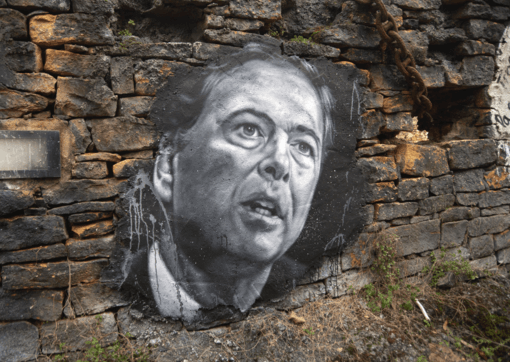
Photo by thierry ehrmann | CC BY 2.0
Now the liberals are attacking James Comey and his important book, A Higher Loyalty: Truth, Lies and Leadership. MSNBC’s Ari Melber and The New York Times’ oped writers, Charles Blow and Frank Bruni, have made outrageous attacks on Comey and his book in the past several weeks. Blow argues that neither Donald Trump nor James Comey should be held in high esteem and that both men have “raging egos and questionable motives.” Bruni states that watching Comey promote his book is “to see him descend” and that Comey has “joined Trump almost as much as he’s defying him.” Melber dismisses Comey as someone who has “doubled-down on his own mistakes.”
Journalists such as Melber, Bruni, and Blow are fortunate in never having faced the kind of challenges and threats to U.S. governance that James Comey faced over a fifteen-year period as an official at the Department of Justice and the Federal Bureau of Investigation. In each one of these cases, Comey carefully explains the challenges to law and to governance that had to be addressed. In doing so, Comey became an “inside” whistleblower willing to take on the establishment. In my 42 years of federal service, I’ve never encountered anyone more willing to challenge both presidents and cabinet officers.
In the wake of 9/11, President George W. Bush signed a secret presidential finding that allowed the National Security Agency to create a highly classified program, code-named “Stellar Wind,” that violated the constitutional rights of American citizens. NSA actually went beyond what was authorized by the White House, moving from the legally dubious to activities that were unlawful and even unconstitutional. Two brilliant DoJ lawyers made this determination, but it was James Comey who challenged NSA director Michael Hayden and President Bush to prevent reauthorization of the program without congressional approval.
It was Comey who told the president that parts of the Stellar Wind program could not be supported and that the DoJ “just can’t certify to its legality.” And it was Comey who threatened to resign, and who convinced the president that he had “been badly misled by your staff.” Do Comey’s liberal critics have evidence of similar examples of courage?
Comey told Vice President Dick Cheney that the surveillance memorandum was “so bad as to be ‘facially invalid’” and that “no  lawyer could rely upon it.” Cheney’s villainous lawyer, David Addington interjected, “I’m a lawyer,” and I relied upon it. Again, it was Comey who added “No good lawyer.” Comey doesn’t say so, but It was Addington’s safe that held the secret presidential order that put into place the massive surveillance of American citizens. Do Comey’s liberal critics understand any of this?
lawyer could rely upon it.” Cheney’s villainous lawyer, David Addington interjected, “I’m a lawyer,” and I relied upon it. Again, it was Comey who added “No good lawyer.” Comey doesn’t say so, but It was Addington’s safe that held the secret presidential order that put into place the massive surveillance of American citizens. Do Comey’s liberal critics understand any of this?
A year or so later, Comey formally withdrew the DoJ legal opinions from 2002 and 2003 that permitted the CIA to conduct its unconscionable and sadistic program of torture and abuse. Comey knew that the DoJ had made serious legal mistakes in advising the president and his administration about these surveillance and interrogation practices. In fact, all of the legal opinions involved the sanctioning of unconstitutional behavior. And just as the NSA exceeded what the DoJ had sanctioned, the CIA exceeded DoJ authorities in its conduct of sadistic torture and abuse. Again, it was Comey who forced the DoJ to fix its errors.
The matter of Hillary Clinton’s emails is far more complicated from a legal point of view, and Comey did break with tradition in his handling of the matter. But if Hillary Clinton had not been so arrogant and deceitful in her efforts to skirt rules for the handling of sensitive classified information as well as the rules for safekeeping government records, there would have been no case. And if General David Petraeus had not benefitted from a double standard in not getting charged with a felony for lying to the FBI, then perhaps Hillary Clinton would not have been handled so delicately by the Department of Justice. In both cases, a CIA director and a Secretary of State got away with behavior that would have sent me to jail.
In the case of Comey v. Trump, we have Frank Bruni arguing that “Comey is playing Trump’s game, on Trump’s terms. And in that sense, he has let the president get the better of him.” No, Mr. Bruni, in this case we have a president of the United States who is unfit to serve, who has surrounded himself with a cabinet of “grifters and miscreants,” in the words of Paul Krugman, and who lacks a moral compass. As for James Comey, he has been a public servant in the best sense of that term, challenging the unconscionable decision making of Presidents Bush and Trump and filling the void created by two inept attorneys general, Alberto Gonzalez and Loretta Lynch.
There are few examples of genuine ethical leadership in my experience, but James Comey would be at the top of a very short list of those who qualify. Liberal critics would do well to read Comey’s book more carefully and reconsider their simplistic assertions.